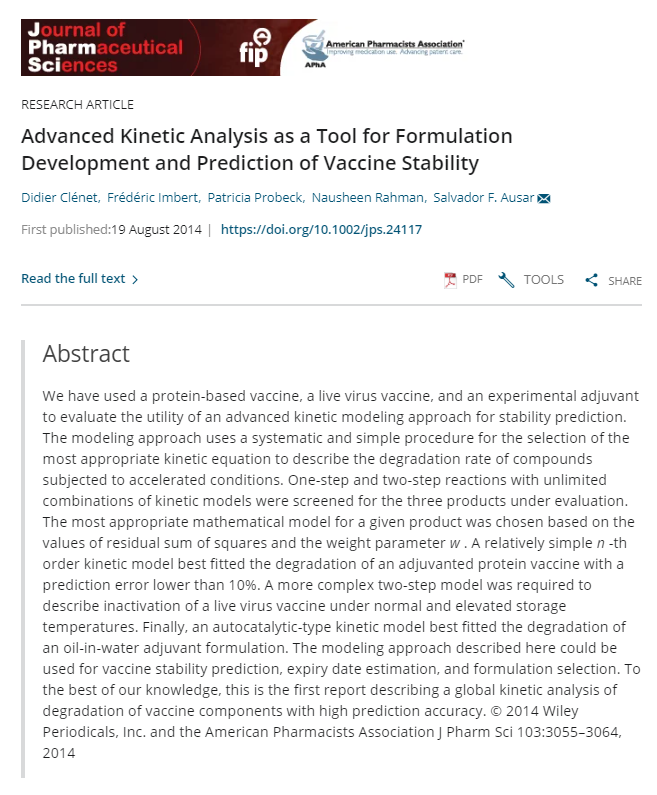+ More information
1Bioprocess Research & Development, Sanofi-Pasteur, 69280 Marcy L’Étoile, France
2Bioprocess Research & Development, Sanofi-Pasteur, Toronto, ON M2R 3T4, Canada
Abstract
We have used a protein-based vaccine, a live virus vaccine, and an experimental adjuvant to evaluate the utility of an advanced kinetic modeling approach for stability prediction. The modeling approach uses a systematic and simple procedure for the selection of the most appropriate kinetic equation to describe the degradation rate of compounds subjected to accelerated conditions. One-step and two-step reactions with unlimited combinations of kinetic models were screened for the three products under evaluation. The most appropriate mathematical model for a given product was chosen based on the values of residual sum of squares and the weight parameter w. A relatively simple n-th order kinetic model best fitted the degradation of an adjuvanted protein vaccine with a prediction error lower than 10%. A more complex two-step model was required to describe inactivation of a live virus vaccine under normal and elevated storage temperatures. Finally, an autocatalytic-type kinetic model best fitted the degradation of an oil-in-water adjuvant formulation. The modeling approach described here could be used for vaccine stability prediction, expiry date estimation, and formulation selection. To the best of our knowledge, this is the first report describing a global kinetic analysis of degradation of vaccine components with high prediction accuracy. If your institution has access, you may view this paper at:

